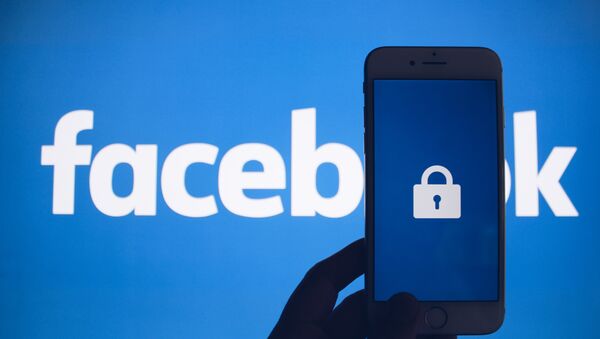The British government plans to implement measures to regulate social media organisations and could wallop them with massive fines if they fail to expunge "harmful content" from their platforms, according to the UK's Digital Minister.
In an interview with Business Insider, Margot James laid out the UK government's vision for a new independent technology regulator that would be granted permission to monitor social media companies, including Facebook, and to even mete out fines against them if they are not found to be sufficiently protecting users from malicious content, including so-called 'hate speech.'
Miss James revealed to Business Insider that the plans will be outlined in a policy paper to be released next month, but what is already apparent is that it will mark the beginnings of a massive effort by London to regulate social media companies.
READ MORE: Facebook 'Digital Gangsters': Facebook Blasted for Shadowy Conduct in New UK Gov't ReportCC
In her interview, Miss James also reportedly explained that the new independent regulatory body will be given the absolute authority to decide what constitutes harmful content — powers that free-speech advocates are likely to look upon with concern.
"There will be a powerful sanctions regime and it's inconceivable that it won't include financial penalties [against companies]," Miss James is quoted as saying.
READ MORE: Technology Expert: Zuckerberg Has Limited Influence on the Overall Company Today
"And they will have to be of a size to act as a deterrent," she added.
Does that mean they will be taking down all the Islamic hate pages on their platforms? Just asking.
— d.bunker99 (@Bunker99D) 28 February 2019
According to Business Insider's report, for Facebook, these fines could be as high as $2.2 billion. Yet, Google is also slated to become an object of the new body's attention, and if fined, it might have to pay out fines of up to a gargantuan $5.4 billion.
Yet, it might not only be the finances of tech companies that are hit. The UK government has also previously suggested that the executives of technology firms could face criminal action if they don't prevent hate speech and other harmful content, including child pornography, from appearing on their platforms.
"We will consider all possible options for penalties, the UK's culture secretary told the BBC in an interview early in February.
Defining Harmful Content
Yet, free-speech advocates are likely to look upon such developments with a critical gaze. Debates over what exactly constitutes 'harmful content' and 'hate speech' have abounded over the years, in part because of the definitional ambiguity of those terms. At a time when many feel politically correct speech policing is on the rise, there will no doubt be concerns that handing over the power of definition to an unelected independent body is fraught with risk.
They mean anything they and their globalist wirepullers disagree with.
— d.bunker99 (@Bunker99D) 28 February 2019
What qualifies as bad content?
— Stern (@benstern120) February 28, 2019
Yet, Miss James has said that the UK government is taking a "holistic" view of what represents harmful content. She told Business Insider that the new regular will inspect various content, not just hate speech, but also terrorist propaganda videos and child abuse. However, she also said that "misinformation" — often use as a synonym for 'fake news' — will be included. This too may exacerbate concerns that the new regulator could simply use its power to purge information that is disagreeable to the British establishment.
Miss James herself even confessed that, "these judgements are not necessarily clear."
READ MORE: Tommy Robinson Banned From Facebook and Instagram
The US, where many of the tech giants are based, generally has less restrictive laws around speech than countries in Europe. It does not ban hate speech, for example.
However, Miss James reportedly emphasised during her interview that the new powers, if enacted, would have to be "sensitively applied" because, "We clearly don't want a kind of regulatory environment whose default is to deny and suppress because we want to encourage innovation."
The development comes hot on the heels of report into online "disinformation" by the UK parliamentary Digital and Culture Committee. The report concluded that Facebook had become a "digital gangster" and called for the social media giant to be regulated by new government law, also saying that the UK should lead the way in a global effort to restore "balance" between social media platforms and "the people."


